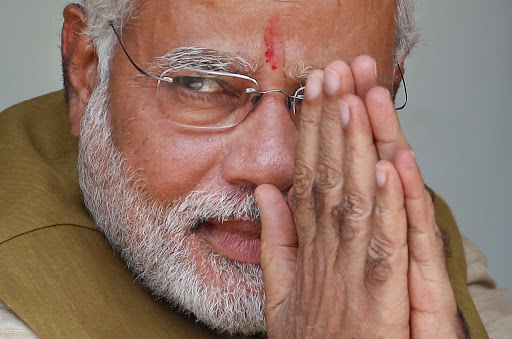Amid Hindu nationalist euphoria, Narendra Modi, leader of the Hindu right-wing Indian People’s Party, is to be sworn in as the prime minister of India in New Delhi on Monday, May 26.
But not all Indians are celebrating.
Take Samson Christian, for example. The outspoken Protestant activist recalls when Modi’s BJP (Bharatiya Janata Party) ruled the roost in his native Gujarat State.
He should remember: Christian, an activist of the All India Christian Council, was beaten up by Hindu fundamentalists in late 1990s, when Christian targets in Gujarat underwent a series of assaults.
Now, he warns, “Once they are in power, gradually you will see their true colors.”
John Dayal, an outspoken national Catholic activist, tends to concur. “Yes, Modi is trying to project an impression of inclusiveness,” he said. “But the question is how real is this language. He has not so far said a word assuring the ‘religious minorities’ in the country,” added Dayal, who was a member in the National Integration Council, headed by outgoing Prime Minister Manmohan Singh.
“Incidents of violence against Christians have been higher in BJP-ruled states. Hope things will be different this time. We will have to wait and see,” Dayal added.
The general electorate seemed confident, however, as election results exceeded forecasts. In a staggered vote held in nine phases from April 7 to May 12, the BJP won 282 seats in the 543-member Parliament, while the National Democratic Alliance it heads captured 336 seats. In the process, the Hindu nationalist party decimated the ruling Congress Party, which won a mere 44 seats.
Promptly congratulating Modi, Cardinal Baselios mar Cleemis, president of the Catholic Bishops Conference of India, expressed optimism that the new government will "continue to uphold … secularism and principles of democracy to lead the nation on the path of development."
"The new government has the responsibility to ensure the security of the minorities and to show special consideration towards the weaker sections of the country," Cardinal Cleemis said.
Though a Hindu nationalist regime has assumed the mantle of governance of the largest democracy on earth for the first time, Archbishop Stanislaus Fernandes of Gandhinagar, capital of western Gujarat state where Modi headed the government for 13 years, remarked: “The Church need not be alarmed.”
“Modi proposed a new plan of action before the nation, and the voters have opted for it. We welcome the change,” Archbishop Fernandes, former Catholic Bishops Conference of India secretary general, told Aleteia May 22.
When asked about the change in Modi’s rhetoric, the archbishop replied: “We are happy that he seems to be adopting a more inclusive language.”
He also expressed optimism that “it will be translated into action…. Modi has the duty to be a leader to all Indians.”
Even some of Modi’s critics point out that his speeches during the election campaign, and especially after the BJP victory, have been marked by “moderation.” Modi has been “inclusive” in his post-victory speeches and has repeatedly assured that he will take “the whole nation of 1.25 billion people” in the path of development.
Modi had been known as a staunch Hindu nationalist. After assuming the mantle of Gujarat chief minister in 2001, he became a highly polarizing figure for his widely-criticized failure to control the 2002 anti-Muslim carnage that had left hundreds dead following the torching of a train carrying Hindu pilgrims.
Because of his questionable role in the incident, Modi has been the only leader who had been denied a U.S. visa under its International Religious Freedom Act.
Now, however, President Barack Obama has called to congratulate Modi and to invite him to visit the United States.
Political pundits cite the resounding victory of the BJP in northern Uttar Pradesh— India’s most populous state with over 200 million people—as an example of the waning of antagonism toward Modi in several quarters. In the crucial state where BJP had won only 10 seats in 2009, it won 71 out of 80 seats. This could not have been possible, columnists point out, without the support of Muslim voters.
Yet, BJP’s Hindu nationalist tag continues to stir apprehension. Amid the hype over BJP victory, Christians are wondering whether the “inclusiveness” Modi now trumpets is real.
“This is only a mask,” quipped Samson Christian. “Modi is trying to project himself as a good leader to generate support nationally and internationally.”
Anto Akkarawrites from New Delhi, India.

